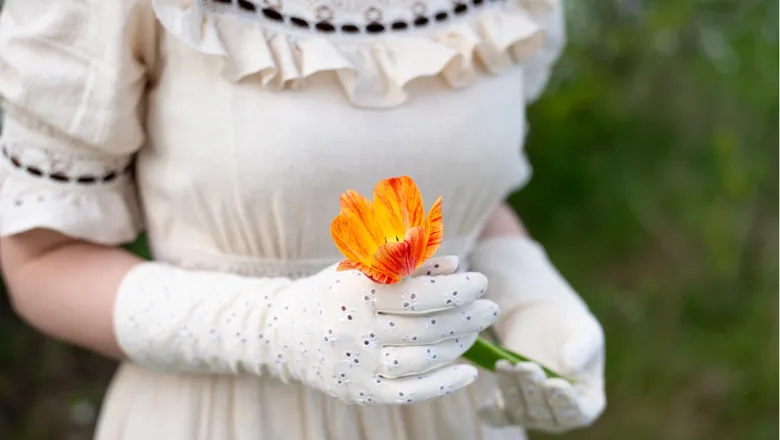05 June 2025
COMMENT: Netflix to remake Pride and Prejudice – why Jane Austen novels make perfect period adaptations
Dr Shelley Galpin, Lecturer in Culture, Media and Creative Industries
In the 250th anniversary of Jane Austen's birth, it would seem that every new generation wants its own adaptation of Jane Austen’s perennial classic.

Announcing its new six-part adaptation of Pride and Prejudice, Netflix quoted screenwriter Dolly Alderton as saying: “Once in a generation, a group of people get to retell this wonderful story.” In the 250th anniversary of her birth, it would seem that every new generation wants its own adaptation of Jane Austen’s perennial classic.
It’s 30 years since Colin Firth’s Darcy decided that the only remedy for unrequited love was a dip in a muddy lake. And 20 since Matthew Macfadyen’s Darcy strode across a chilly field at sunrise to declare that Keira Knightley’s Lizzie had “bewitched me body and soul”. And, erm, almost 10 years since Lily James’s Lizzie fell for Darcy while simultaneously battling zombie hordes in Pride and Prejudice and Zombies.
Netflix’s (zombie-free) adaptation has, at time of writing, announced that Emma Corrin will play Lizzie opposite Jack Lowden’s Darcy, with Olivia Colman set to play Lizzie’s mother, Mrs Bennet. So with another retelling of the iconic love story on the horizon, what makes it such a attractive novel to adapt for screen?
The clue is partly in the name. The characters are deeply flawed; Darcy is proud, Lizzie is prejudiced against him after she feels slighted at their first meeting. Both need to learn to “get over themselves” to achieve their happy ending. This makes for a highly satisfying character arc. It is difficult to imagine the love story between Lizzie’s “oh-so-perfect” sister Jane and the amiable Mr Bingley having quite the same draw.
It is satisfying when these two destined-to-be-together characters finally find their happy ending. But the scheming of Bingley’s snobbish sister and the misguided loyalty of Darcy that interrupt the progress of their budding romance do not present the same dramatic tension as Lizzie and Darcy’s own internal battles.

In one of the most iconic lines, upon learning of an error of judgement, Austen’s Lizzie ruefully acknowledges that, “Till this moment I never knew myself”. It is this internalised process of self-reflection and growth that makes for such compelling and relatable characterisation.
While creating flawed characters, though, Austen reserved her most acidic barbs for the more powerful members of society. Recently, White Lotus star Aimee Lou Wood called out her cruel portrayal in a Saturday Night Live skit, wisely drawing attention to the difference between punching up at the more powerful and punching down at easy targets with less social capital.
Austen’s work is defined by her keen sense of class hierarchies, and she skilfully maintains a warmly humorous tone by gently mocking the human foibles of her characters, while never treating them with contempt.
However, in the same way that the hit show Succession delighted audiences with the opportunity to recoil at the vulgarities of the rich, in Pride and Prejudice Austen punches up by reserving her most mocking behaviour for the privileged.
Rich matriarch Lady Catherine de Bourgh delights in lecturing others about the correct way to behave, only to turn up at the Bennet household in the middle of the night with the sole intention of berating Lizzie. And the ridiculous Mr Collins, heir apparent to the Bennet family home, appears almost delusional in his belief that he is God’s gift to the Bennet sisters.
These supporting roles have given a range of great actors the chance to lean into Austen’s social satire by emphasising the abhorrent nature of the characters, and by extension, revealing the stifling nature of the social system that the characters exist within.
Society isn’t the only thing stifling the characters however. Perhaps one of the most appealing aspects of Pride and Prejudice is its situating of Lizzie within the best and the worst of what family has to offer, allowing for a colourful cast of supporting characters.
Embarrassing family members such as the meddling mother and the no-filter youngest sister have a universal relatability that can be easily moulded to contemporary sensibilities.
Mrs Bennet in particular, played for laughs with exaggerated hysteria by Alison Steadman for the BBC in 1995, was reimagined in a rather more sympathetic light in Joe Wright’s 2005 film adaptation, when the very real perils facing her and her daughters upon the death of her husband were more sensitively explored.
With the highly acclaimed Olivia Colman – so skilled at conveying emotional complexities – now cast in the role, it is likely that this more nuanced take on the character will continue, particularly in the light of more recent high-profile explorations of gendered power dynamics.
Family life is not all bad for Lizzie though. In Jane Bennet, Austen creates the perfect older sister. Not only does she provide adaptations with an ideal subplot through her romance with Bingley, but the intimacy between the sisters also allows for useful scenes in which the characters discuss their innermost feelings.
Through their private conversations, the sisters confide in each other, while also lying to each other and themselves about their true feelings, as the audience holds its breath through the highs and lows and waits for the inevitable happy ending to arrive.
Because, ultimately, it’s all about the love story. While many literary critics have observed the fallacy of ending a romance with marriage, when this is really just the beginning, the fairytale structure of Austen’s novel, with its movement through burgeoning emotions, frustration and despair, arriving finally at self-knowledge and love, has proven a winning formula for centuries.
Lizzie and Darcy will keep finding each other, generation after generation. Wet shirts and zombies, optional.
This article is republished from The Conversation under a Creative Commons license. Read the original article



